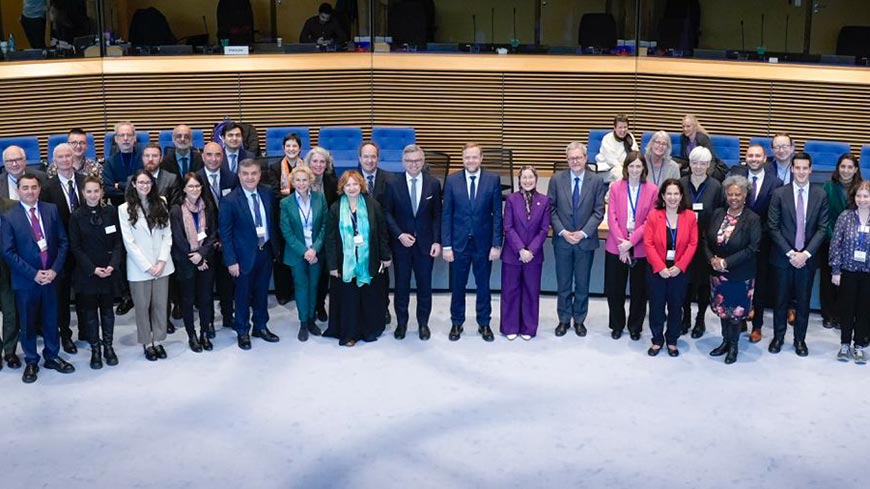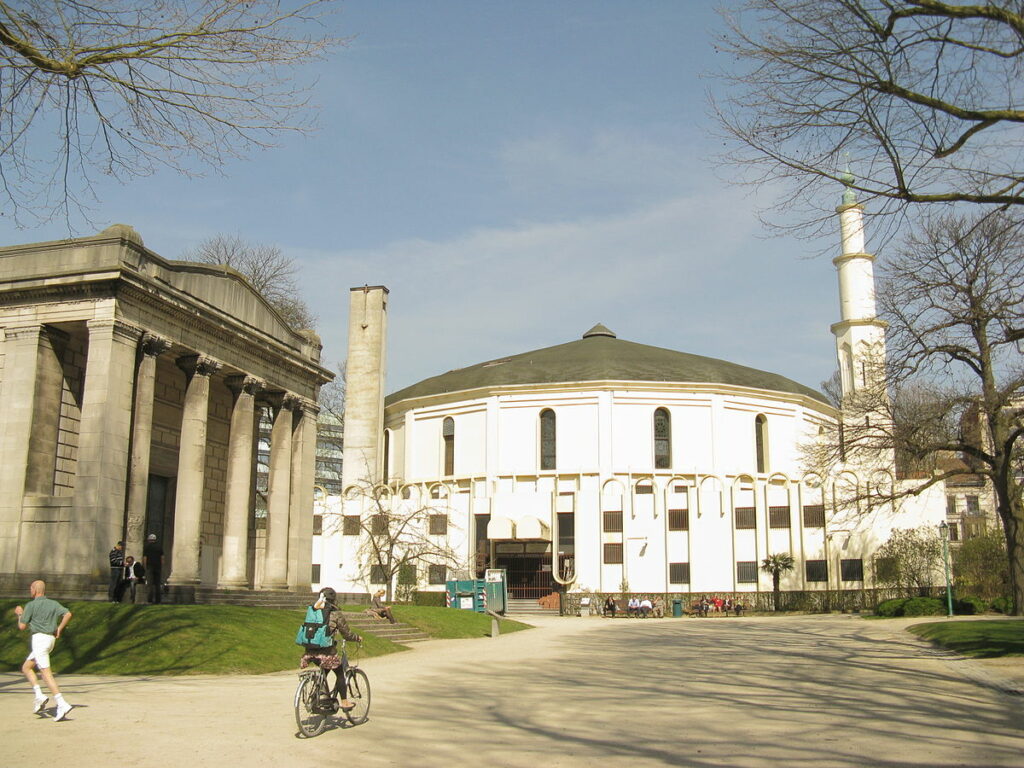The European Commission hosted this week a coordination meeting in Brussels to address the growing challenge of anti-Muslim hatred, racism and harmful narratives in the EU.
The conference, which was co-organised with the Council of Europe, gathered Coordinators, Special Representatives, Envoys, and Ambassadors committed to combatting anti-Muslim hatred, racism and discrimination. Commissioner for Internal Affairs and Migration, Magnus Brunner, and Council of Europe Deputy Secretary General, Bjørn Berge, opened the conference.
It took place ahead of the International Day to Combat Islamophobia. The day was designated by the United Nations in 2022 and takes place on 15 March every year on the anniversary of the mass shootings in Christchurch, New Zealand, in which 51 people were killed during the Friday prayer in 2019.
Muslims represent the second largest religious group in the EU, belonging to different ethnicities and religious affiliations. Figures seem to be uncertain and their number was estimated in 2016 to ca 25 million in the EU or 5 % of the total population, with most Muslims living in France, Germany, Italy, The Netherlands and Spain, with percentages varying between ca 2,5 and 9 %.
In his speech, Bjørn Berge, recalled that the meeting took place a moment when millions of fellow Muslim Europeans are observing the holy month of Ramadan — a time of reflection, unity, and community. “It is also a reminder of the diversity that strengthens our societies and the values that bind us together.”
However, those values are under attack. According to the numbers from the latest survey of the European Union Agency for Fundamental Rights (FRA), nearly one in two Muslims has faced racial discrimination in the past five years, four in ten report bias when applying for a job and one in three has been denied housing because of their religion.

The Second Coordination meeting on combatting anti-Muslim hatred and racism took place on 13-14 March 2025 in Brussels, credit: EU
Participants in the conference reaffirmed that hate crime, hate speech, and discrimination against individuals based on their faith or beliefs are unacceptable. Muslims, in all their diversity, are an integral part of our societies and should be able to live free from prejudice and intolerance.
Negative stereotypes and stigmatisation of Muslims persist and are amplified by global polarisation and conflicts. Such biases can affect everyday lives, reputations, and safety, with some civil society actors, academics, and institutions facing harassment, attempts to silence them and hinder their efforts.
The participants at the meeting strongly condemned any attacks on places of worship and cemeteries.
They also highlighted the need to address structural and systemic discrimination, where Muslims may be perceived as a monolithic group defined by stereotypes. The rise of hate speech on social media has further deepened divisions, creating a less safe environment for marginalised communities and driving advocates out of public discourse.
Participants committed to ongoing collaboration, exchanging insights, and coordinating national efforts to counteract rising anti-Muslim narratives, hate crimes, and discrimination. Together, they aim to build more inclusive societies founded on respect for fundamental rights.
As previously reported, the European Commission appointed Marion Lalisse as Coordinator on combating anti-Muslim hatred on 1 February 2023. According to her mandate, she will work with Member States, European institutions, civil society and academia to strengthen policy responses in the field of anti-Muslim hatred.
There are two other coordinators with related tasks, combating antisemitism and racism, and a special envoy for the promotion of freedom of religion or belief outside the EU.
M. Apelblat
The Brussels Times

